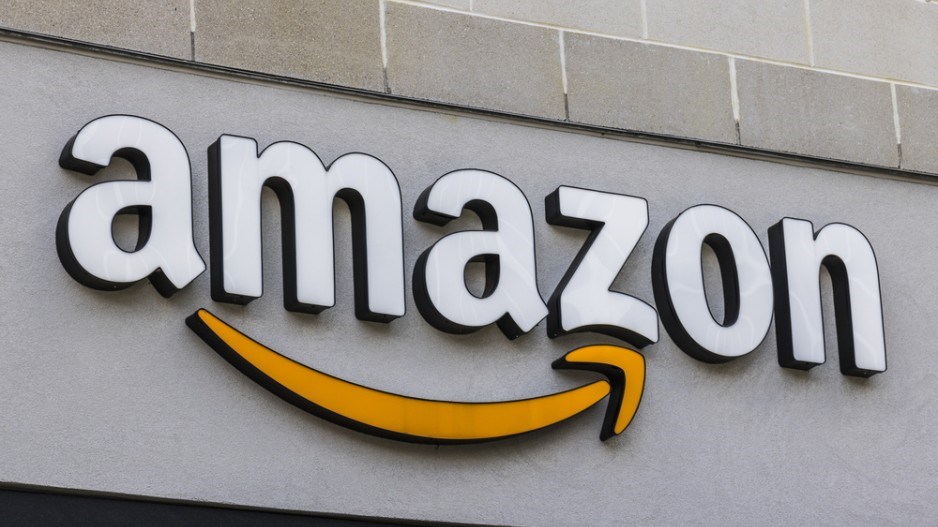Amazon’s (Nasdaq: AMZN) plans to open a second headquarters in North America could be a “game-changer” for Vancouver if the tech giant were to plant new offices in the city.
The Seattle-based company announced Thursday (September 7) that it’s opening a request for proposal to cities and economic development organizations to host a second headquarters.
“It would be a game-changer to have their second office here,” said Glenn Gardner, a principal at Avison Young Commercial Real Estate’s Vancouver office.
Gardner said it’s clear the city is already a good fit from a livability and talent perspective
“You’re literally a two-hour drive down, you’re a 30-minute flight. Amazon clearly already likes Vancouver, they have a presence here already,” he said.
Amazon presently has an office in downtown Vancouver as well as a distribution centre in Delta.
The company’s request for proposal estimates that it would invest US$5 billion in constructing a second headquarters that could house as many as 50,000 workers.
“Amazon HQ2 will be a complete headquarters for Amazon — not a satellite office,” Amazon said in its announcement.
“The company expects that employees who are currently working in HQ1 can choose to continue working there, or they could have an opportunity to move if they would prefer to be located in HQ2.”
Amazon’s current headquarters in Seattle has more than 40,000 employees working across 33 buildings in a total of 8.1 million square feet.
“Any major metropolitan city is going to have some constraints meeting this requirement — 8.1 million square feet is a lot of space,” Gardner said.
“People have got to live somewhere and if there’s not 40,000 people in our city looking for technology jobs today, they’re going to have to come from outside of the city. So this type of requirement is really going to require the city to think creatively.”
Gardner said any bid would need to consider housing infrastructure and schools.
Following Amazon’s announcement, Vancouver Mayor Gregor Robertson tweeted “Great news! @amazon would be fantastic addition to #Vancouver's world-class innovation ecosystem.”
Ingrid Valou, a spokeswoman with the Vancouver Economic Commission, said her organization has already been in contact with both the mayor’s office as well as “top brass” at Amazon’s Canadian headquarters regarding the request for proposal.
“The VEC is establishing a project team to work in co-ordination with the City of Vancouver and our partners on other levels of government, regionally and provincially,” she said.
In a statement issued later in the day, VEC CEO Ian McKay said the city’s business climate, diversity and infrastructure made it an “exceptional candidate” for a second Amazon headquarters.
“We are confident that Vancouver’s other well-known attributes – a dense and connected downtown tech cluster, competitive cost of doing business, leadership in green business and sustainable planning, and Canada’s strongest startup ecosystem, to name a few – will position us as a frontrunner among other cities,” McKay said.
Meanwhile, B.C. Technology Association CEO Bill Tam said the region is well positioned to take a run at the HQ2 bid and that concerns over square footage requirements shouldn’t be too daunting.
“There’s still plenty of opportunity to create those sort of footprints … even within Vancouver itself, not just Metro Vancouver,” Tam said.He pointed to False Creek Flats as one the city’s largest parcels of land that could be developed for a tech company like Amazon.
The area is already home to the Centre for Digital Media, a partnership between the University of B.C., Simon Fraser University, the B.C. Institute of Technology and Emily Carr University of Art and Design.
Meanwhile, the new St. Paul’s Hospital will also open in the area in 2022.
“It’s really just about ensuring that the right kind of zoning aspects are there,” Tam said.
Iain Black, president and CEO of the Greater Vancouver Board of Trade, said the indirect economic activity that an Amazon HQ2 in Vancouver could create is “off the charts.”
He said the country’s attractive immigration policies, B.C.’s low electricity costs and Vancouver’s port and airport access all work in favour of a bid.
“We also have the ability here, because of the quality of life, to attract the — if you will — white-collar technology worker,” he said.
“I’ve spent time in the Silicon Valley. It’s a wonderful, heady, exciting, vibrant place. But it’s a grind and it’s all concrete.”
The region’s land constraints may be one of the more notable challenges when attracting a tech giant seeking a second headquarters requiring up to 8.1-million-square-feet, according to Black.
“You’re most likely going to have to get a regional piece of land that somebody can convince the ALR [Agricultural Land Reserve Commission] to take out of Surrey or maybe Burnaby,” he said.
Meanwhile, space to lease in office towers is at a premium throughout the region.
The vacancy rate in Metro Vancouver’s office market dropped to 9.1% at the midpoint of 2017, according to Avison Young’s mid-year office market report.
That’s down from 10.4% at the same point of 2016.
“Vacancy in the downtown office submarket is forecasted to tighten further as tenants continue to expand and new tenants enter the market,” the report said.
In its announcement, Amazon said it has a preference for proposals that included:
· Metropolitan areas with more than one million people
· A stable and business-friendly environment
· Urban or suburban locations with the potential to attract and retain strong technical talent
· Communities that think big and creatively when considering locations and real estate options
Gardner said Vancouver can already check all the boxes when it comes to those preferences.
Updated on September 7 with comments from Bill Tam and an additional statement from the Vancouver Economic Commission




